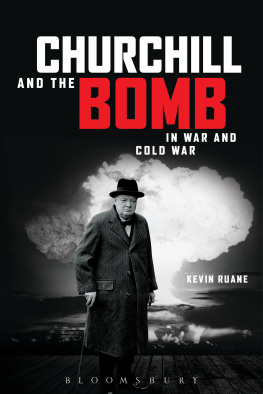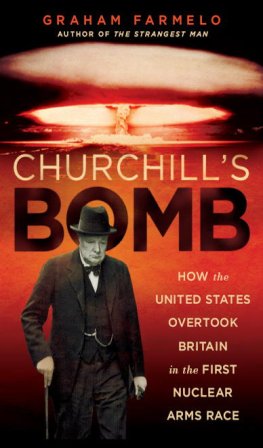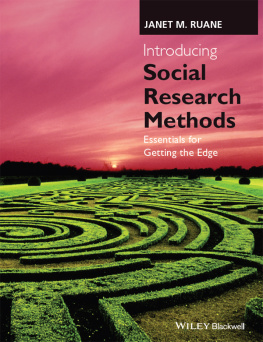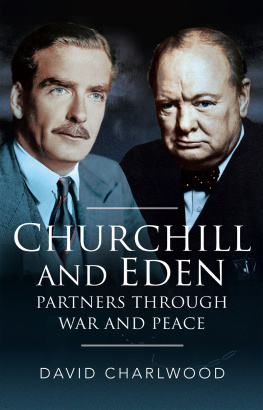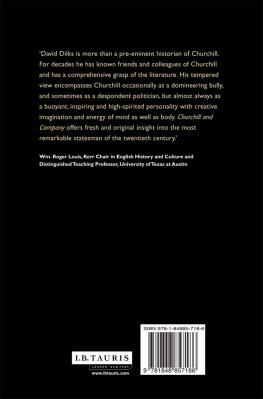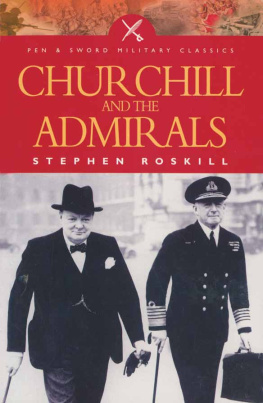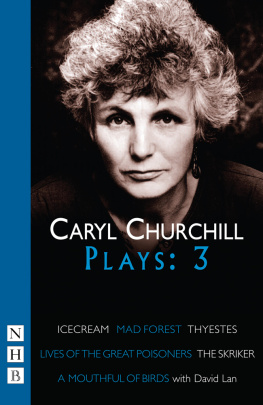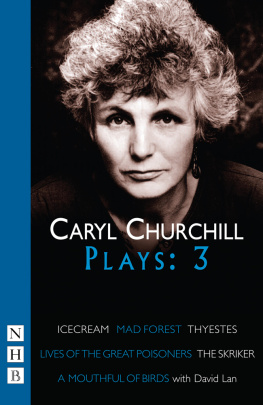Ruane - Churchill and the Bomb in War and Cold War
Here you can read online Ruane - Churchill and the Bomb in War and Cold War full text of the book (entire story) in english for free. Download pdf and epub, get meaning, cover and reviews about this ebook. City: London, year: 2018;2016, publisher: Bloomsbury UK;Bloomsbury Academic, genre: Science. Description of the work, (preface) as well as reviews are available. Best literature library LitArk.com created for fans of good reading and offers a wide selection of genres:
Romance novel
Science fiction
Adventure
Detective
Science
History
Home and family
Prose
Art
Politics
Computer
Non-fiction
Religion
Business
Children
Humor
Choose a favorite category and find really read worthwhile books. Enjoy immersion in the world of imagination, feel the emotions of the characters or learn something new for yourself, make an fascinating discovery.
Churchill and the Bomb in War and Cold War: summary, description and annotation
We offer to read an annotation, description, summary or preface (depends on what the author of the book "Churchill and the Bomb in War and Cold War" wrote himself). If you haven't found the necessary information about the book — write in the comments, we will try to find it.
Ruane: author's other books
Who wrote Churchill and the Bomb in War and Cold War? Find out the surname, the name of the author of the book and a list of all author's works by series.
Churchill and the Bomb in War and Cold War — read online for free the complete book (whole text) full work
Below is the text of the book, divided by pages. System saving the place of the last page read, allows you to conveniently read the book "Churchill and the Bomb in War and Cold War" online for free, without having to search again every time where you left off. Put a bookmark, and you can go to the page where you finished reading at any time.
Font size:
Interval:
Bookmark:
For Vanessa

Lindemann and Churchill in 1940
Sir John Anderson
Churchill and Roosevelt, June 1942
Stalin, Roosevelt and Churchill, Tehran, 1943
Niels Bohr
Churchill, Roosevelt and Stalin in the grounds of the Livadiya Palace, Yalta, during the Three Power Conference
Harry S. Truman
Hiroshima, 6 August 1945
Churchill, Fulton, 5 March 1946
Churchill and Attlee, February 1950
The Prof, November 1951
Churchill and Eden, Bermuda, December 1953
Churchill by Illingworth, Punch, 3 February 1954
Dulles, Churchill, Eisenhower, Eden, Washington 1954
Churchill leaves for the Palace, 5 April 1955
Whilst writing, a book is an adventure, Winston Churchill reflected in 1949. To begin with, it is a toy and an amusement; then it becomes a mistress, and then it becomes a master, and then a tyrant. The last phase is that just as you are about to be reconciled to your servitude, you kill the monster, and fling him to the public.
Churchill, a prolific author, knew whereof he spoke. However, as my family will testify, the process of writing this particular book went very quickly to the tyrant phase. The fact that it was finished at all never mind completed miraculously close to the contractual deadline owes a tremendous amount to the support and understanding of my children, Niamh, Fiontan and Eimear, of my step-son, Sam, and above all of my wife, Vanessa, who made (and makes) everything possible and to whom the book is lovingly dedicated.
Although the arguments and interpretations in Churchill and the Bomb are all my own, the final outcome the monster, as it were has benefitted from the encouragement, advice and wisdom of friends, colleagues and scholars, many of whom gave generously of their time in reading all or parts of the manuscript. My thanks, therefore, to Paul Addison, Kathy Burk, Jackie Eales, Matthew Jones, Shaun Sturips, Richard Toye, Geoffrey Warner, Martin Watts and John Young. To James Ellison, I owe especial thanks: a fine historian, he is also the frankest and most penetrating of critics. All writers need an Ellison and I count myself singularly fortunate to have the original in my life and not just as a critic and sounding-board but as the very best of friends.
I must also thank, in no particular order: Sean Greenwood who, many years ago, first inspired me to believe I could be an historian; my friends and colleagues in the History Department (as was) at Canterbury Christ Church, and indeed the University itself for its support for my research over several decades; the QR committee of the CCCU School of Humanities for financial backing for my various travels; the many archivists and librarians who have helped me track down the nuclear Churchill in particular Allen Packwood and his team at the Churchill Archives Centre at Churchill College, Cambridge, and Finn Aaserud and Felicity Pons at the Bohr Archive in Copenhagen; Wolfson College Cambridge for granting me visiting academic status complete with a room in Sir Vivian Fuchs House; Celia Morris for her hospitality in Washington DC; at Bloomsbury Publishing, Emily Drewe, Frances Arnold and Emma Goode for the most positive and stress-free publishing experience of my career; John and Nickola Ford for a wooden retreat of great calm and contemplative value; Dr Philippe Laissue for his scientific acumen and wondrous punning; Alex Kent for his geographical pointers; Jonathan Hogg for kindly allowing me to view the pre-publication proofs of his brilliant study of British Nuclear Culture; Richard Smyth and Mark ODonnell, the alternative WSC and FDR; Jim Latham of yore for the RDM; and my CCCU Bomb class of 201415 for demonstrating that research-informed teaching really does exist. Lastly, a second mention for Eimear who, because she lent me her digital camera, feels rightly that she should be formally acknowledged as my research assistant.
Kevin Ruane
Canterbury, December 2015
| AEA | Atomic Energy Authority, UK. |
| AEC | Atomic Energy Commission, USA. |
| AERE | Atomic Energy Research Establishment, UK. |
| AWRE | Atomic Weapons Research Establishment, UK. |
| CCS | Combined Chiefs of Staff, US-UK. |
| CDA | Combined Development Agency, US-UK. |
| CID | Committee of Imperial Defence, UK. |
| COS | Chiefs of Staff, UK. |
| CPC | Combined Policy Committee, US-UK-Canadian. |
| DSIR | Department of Scientific and Industrial Research, UK. |
| EDC | European Defence Community. |
| HMG | His/Her Majestys Government. |
| JCAE | Joint Congressional Committee on Atomic Energy, USA. |
| JCS | Joint Chiefs of Staff, USA. |
| JPS | Joint Planning Staff, UK. |
| MAD | Mutual Assured Destruction. |
| MOD | Ministry of Defence, UK. |
| NATO | North Atlantic Treaty Organization. |
| NDRC | National Defense Research Committee, USA. |
| NSC | National Security Council, USA. |
| OSRD | Office of Scientific Research and Development, USA. |
| PIPPA | pressurized pile for producing power and plutonium, UK. |
| S-1 | US codename for wartime A-bomb research and development. |
| SAC | Strategic Air Command, USA. |
| SACEUR | Supreme Allied Commander, Europe (NATO). |
| TA | Tube Alloys, UK. |
| TA-1 | Bomb project. |
| TA-2 | Power project. |
| UN | United Nations. |
| UNAEC | United Nations Atomic Energy Commission. |
first atomic bomb, its first weapon of mass destruction, a plutonium device, was about to be tested.
For Churchill, a great deal rested on a successful outcome to operation Hurricane, as the test was codenamed, not least Britains graduation as an atomic power and its admission to an exclusive club which presently had just two members, the United States and the Soviet Union. In the months preceding Hurricane Churchill had grown fretful. Pop or flop?, he asked of Frederick Lindemann (Lord Cherwell), his old friend and scientific mentor. Pop, came the reply.
There is no record of Churchills immediate reaction when eventually informed of the test result. Nor do we know what he said to the Queen when he briefed her later in the day. What, one wonders, did this septuagenarian, a veteran of the last great cavalry charge in British military history at Omdurman in 1898, say to his young monarch? Beyond, that is, the obvious, that Hurricane had been a pop not a flop? How did a cavalry officer of the late-Victorian era make sense of the fact that now, at the dawn of the second Elizabethan Age, he had in his hands not a sword or a lance but a weapon containing the kind of pulsing, primordial energy that fuels the stars of the night sky? Did he think in military terms of offence and defence in the Cold War struggle against an atomic-clad Soviet Union? Or in power-political terms? That the bomb granted Britain a status matched only by the other members of the old wartime Big Three? Maybe his thoughts lingered on the wonder and the horror that science had brought forth, on
If, in addition, he thought to himself, at last, that too would be understandable. The moment had been a long time coming more than eleven years, in fact, since August 1941, when Churchill himself, with his country in the coils of a desperate struggle for national survival, gave the go-ahead to a top secret programme of atomic research and development. And yet, in modern popular consciousness and historical memory, this Churchill, the nuclear Churchill, remains largely unknown, certainly when compared with the many rival Churchills that are out there. The quandary of Winston Churchill may be simply expressed, historian Robert Rhodes the spring of 1954, could have brought Churchill the great anti-communist to this painful ideological pass.
Font size:
Interval:
Bookmark:
Similar books «Churchill and the Bomb in War and Cold War»
Look at similar books to Churchill and the Bomb in War and Cold War. We have selected literature similar in name and meaning in the hope of providing readers with more options to find new, interesting, not yet read works.
Discussion, reviews of the book Churchill and the Bomb in War and Cold War and just readers' own opinions. Leave your comments, write what you think about the work, its meaning or the main characters. Specify what exactly you liked and what you didn't like, and why you think so.

